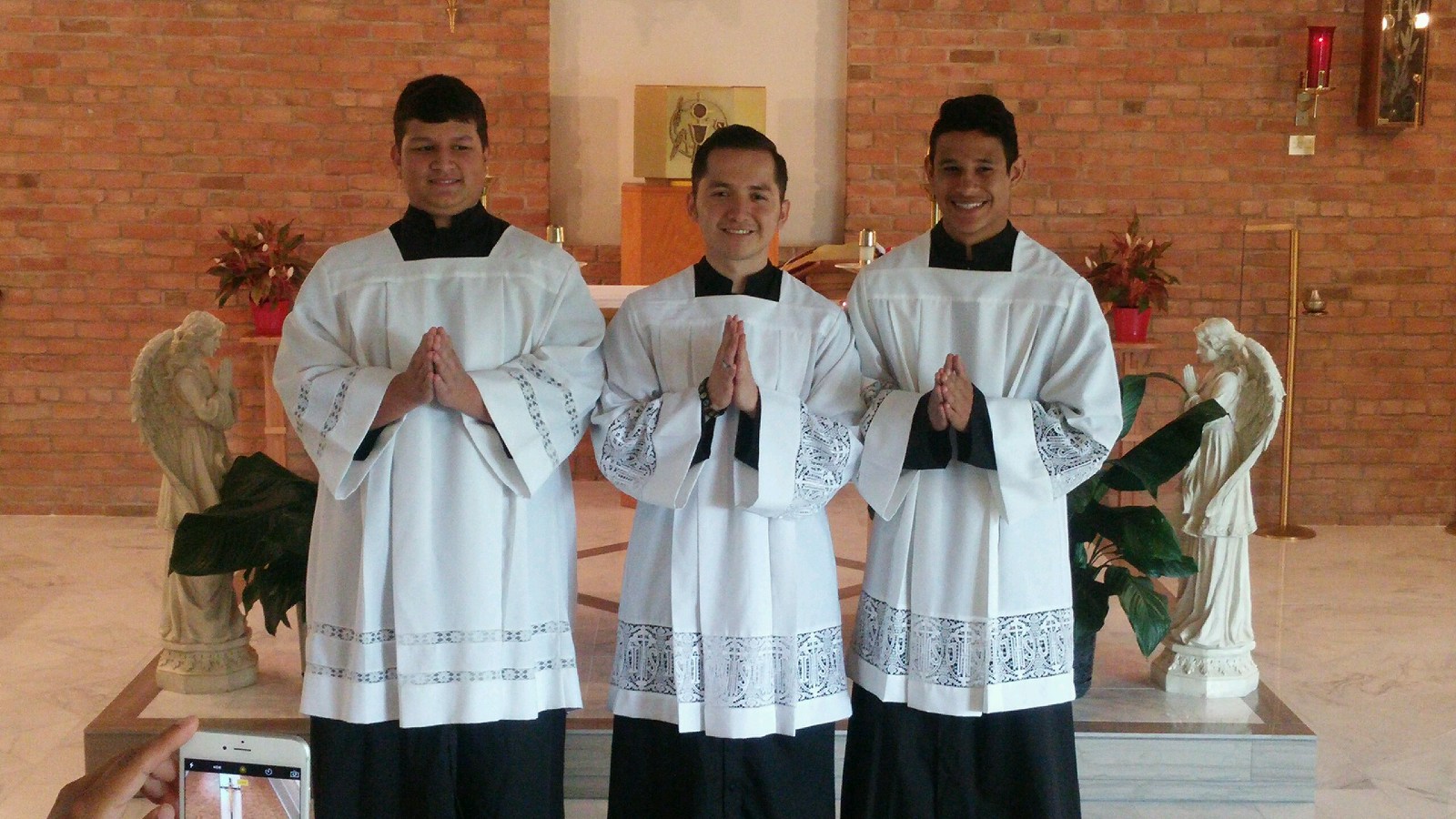In the vast tapestry of popular culture, the enigmatic figure of the Acolyte has captivated audiences for generations. From the ancient myths of Greece to the sprawling sci-fi universes of today, this enigmatic character has served as a guide, mentor, and confidant to countless heroes and heroines.
As we delve into the concept of the Acolyte, we will explore its origins, its diverse interpretations across cultures, and its enduring significance in shaping narratives and conveying profound themes.
Introduction
The Acolyte is a recurring archetype in popular culture, representing an individual who serves as a devoted follower, assistant, or apprentice to a powerful figure or organization. This archetype often embodies themes of loyalty, obedience, and the pursuit of knowledge or power.
The origins of the Acolyte can be traced back to ancient mythology and religious traditions, where individuals were often depicted as serving deities or spiritual leaders. Throughout history, the Acolyte has taken on various forms, from the loyal knights of medieval legends to the dedicated disciples of modern-day spiritual movements.
Historical Significance
Historically, Acolytes have played significant roles in shaping cultural and religious practices. In ancient Egypt, for instance, Acolytes assisted priests in performing rituals and maintaining temples. In the Catholic Church, Acolytes assist priests during Mass and other religious ceremonies.
Cultural Impact
In popular culture, the Acolyte archetype continues to resonate with audiences. From the iconic sidekick in superhero comics to the enigmatic apprentice in fantasy novels, the Acolyte represents the human desire for guidance, knowledge, and a sense of belonging. This archetype often explores themes of mentorship, personal growth, and the complexities of power dynamics.
Character Development

Acolytes are typically characterized by their dedication to a particular deity, faith, or cause. They are often seen as young and eager to learn, and they may possess special abilities or skills that set them apart from others. Acolytes often serve as mentors or guides to protagonists, helping them to understand their own powers and abilities and to find their place in the world.
Famous or Notable Acolytes
Some famous or notable acolytes from various works of fiction include:
- Padawan learners in the Star Wars franchise
- Acolytes of the Shadowhunters in The Mortal Instruments series
- Acolytes of the Sith in the Star Wars franchise
- Acolytes of the Jedi in the Star Wars franchise
Role of the Acolyte as a Mentor or Guide
Acolytes often play an important role as mentors or guides to protagonists. They can provide guidance, support, and training to help the protagonist develop their own powers and abilities. Acolytes can also help the protagonist to understand their own place in the world and to find their purpose.
Narrative Structures

The Acolyte trope often employs common narrative structures and plot devices to create compelling stories. These structures provide a framework for character development, conflict, and resolution.
One common structure is the hero’s journey, where the protagonist embarks on a quest or adventure that tests their abilities and leads to personal growth. In “The Acolyte,” this journey can involve the acolyte learning new skills, facing challenges, and overcoming obstacles.
Character Growth and Conflict
The Acolyte trope can serve as a catalyst for character growth or conflict. The acolyte’s journey often involves overcoming personal challenges, such as insecurity or self-doubt. As they learn and grow, they may face conflicts with mentors, peers, or adversaries.
These conflicts can create tension and suspense, driving the narrative forward. The acolyte’s struggles and triumphs can resonate with readers, making them emotionally invested in the character’s journey.
Examples of Effective Stories
Many stories have effectively utilized the Acolyte trope to create memorable and engaging narratives. Some examples include:
- The Lord of the Rings by J.R.R. Tolkien: Frodo Baggins, a young hobbit, becomes the unlikely hero in a quest to destroy the One Ring.
- Star Wars by George Lucas: Luke Skywalker, a young farm boy, joins the Rebel Alliance and learns the ways of the Force.
- Harry Potter by J.K. Rowling: Harry Potter, a young wizard, attends Hogwarts School of Witchcraft and Wizardry and learns about his destiny.
Thematic Explorations
The concept of “The Acolyte” has been employed in numerous works to convey profound messages about loyalty, faith, sacrifice, and the pursuit of knowledge. These themes resonate deeply with audiences and continue to captivate readers and viewers.
Loyalty
The Acolyte embodies unwavering loyalty to a cause, leader, or belief. They are steadfast in their devotion, even in the face of adversity or temptation. Works that explore this theme often depict the struggles and choices faced by individuals as they grapple with conflicting loyalties.
Faith
The Acolyte’s faith is often tested and challenged, yet it remains a guiding force in their lives. They believe in something greater than themselves and find strength and purpose in their beliefs. Works that focus on this theme examine the nature of faith and its power to sustain individuals in times of doubt and despair.
Sacrifice
The Acolyte is willing to make great sacrifices for the sake of their beliefs or those they serve. They understand that their actions may have profound consequences, but they are prepared to endure hardship or even death for a cause they believe in.
Search for Knowledge
The Acolyte is often driven by an insatiable thirst for knowledge and understanding. They seek to uncover hidden truths and unravel the mysteries of the world. Works that explore this theme emphasize the importance of curiosity and the transformative power of knowledge.
Symbolism and Archetypes
The Acolyte is a powerful symbol and archetype that has been used in literature, art, and mythology for centuries. It represents the young and innocent initiate who is on a journey of self-discovery and enlightenment. The Acolyte is often associated with the qualities of purity, innocence, and hope.
The Acolyte can also represent the collective unconscious, the part of the mind that is shared by all humans. The Acolyte can represent the potential for growth and change that is within us all.
Examples of Works that Use “The Acolyte” as a Symbol or Archetype
* The Acolyte in the novel “The Lord of the Rings” by J.R.R. Tolkien is a young hobbit who is chosen to be the bearer of the One Ring.
* The Acolyte in the film “The Matrix” is a young woman who is chosen to be the savior of humanity.
* The Acolyte in the TV series “Game of Thrones” is a young girl who is trained to be a priestess.
These are just a few examples of the many works that have used “The Acolyte” as a symbol or archetype. The Acolyte is a powerful and versatile symbol that can be used to represent a wide range of ideas and experiences.
Cultural Variations
The concept of “The Acolyte” has been interpreted and adapted in various cultures and societies, resulting in diverse cultural variations. These adaptations reflect the unique cultural, historical, and religious contexts of different regions.
Western Traditions
In Western literature and art, the acolyte is often depicted as a young apprentice or assistant to a priest or other religious figure. They play a supporting role in religious ceremonies and rituals, assisting with tasks such as lighting candles, preparing vestments, and carrying the cross. Examples of acolytes in Western culture include the altar boys and girls in Catholic churches and the acolytes in Anglican and Lutheran denominations.
Eastern Traditions
In Eastern religions, the concept of the acolyte takes on different forms. In Hinduism, for example, the “chela” is a disciple who serves and learns from a guru or spiritual teacher. In Buddhism, the “upasaka” or “upasika” is a lay follower who supports the monastic community. These acolytes play a vital role in preserving and transmitting religious teachings and practices.
Indigenous Traditions
Indigenous cultures around the world also have their own traditions of acolytes. In many Native American tribes, for example, young people are trained as “medicine apprentices” who assist elders in healing rituals and ceremonies. In some African traditions, acolytes serve as intermediaries between the living and the ancestors, performing rituals and sacrifices on behalf of the community.
Contemporary Interpretations
In contemporary society, the concept of the acolyte has been reinterpreted in various ways. In literature and film, acolytes are often portrayed as characters who are drawn to the supernatural or occult, seeking guidance and knowledge from enigmatic mentors. Examples of this include the acolytes in the Harry Potter series and the acolytes of the Sith Lord in the Star Wars franchise.
Summary

The Acolyte stands as a testament to the enduring power of mentorship and the transformative potential of knowledge. Through their wisdom, loyalty, and unwavering support, these enigmatic figures have left an indelible mark on our collective imagination, inspiring us to seek guidance, embrace the unknown, and strive for greatness.
FAQs
Who is the Acolyte?
The Acolyte is a character archetype who serves as a mentor, guide, or confidant to a protagonist. They are typically wise, experienced, and possess specialized knowledge or skills.
What are some examples of famous Acolytes?
Examples of notable Acolytes include Obi-Wan Kenobi (Star Wars), Gandalf (The Lord of the Rings), and Dumbledore (Harry Potter).
How does the Acolyte contribute to narratives?
The Acolyte can serve as a catalyst for character growth, provide guidance in times of crisis, and offer valuable insights that shape the protagonist’s journey.
What themes are associated with the Acolyte?
The Acolyte often embodies themes of loyalty, faith, sacrifice, and the pursuit of knowledge.
How does the Acolyte differ across cultures?
The Acolyte concept has been adapted and reinterpreted in different cultures, reflecting diverse cultural values and beliefs.




